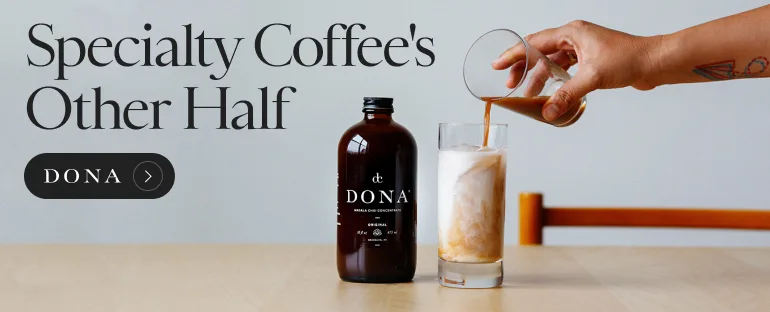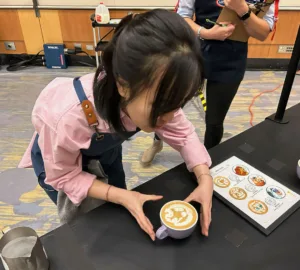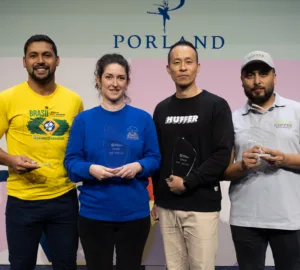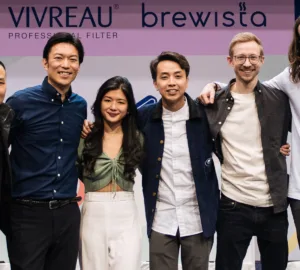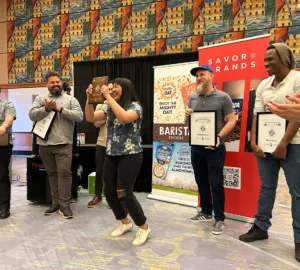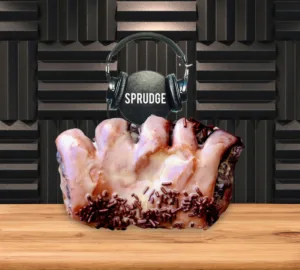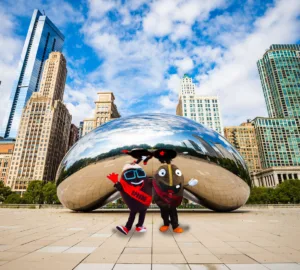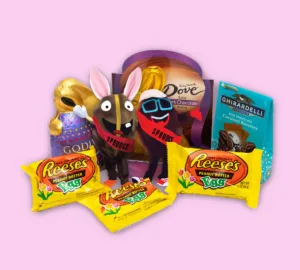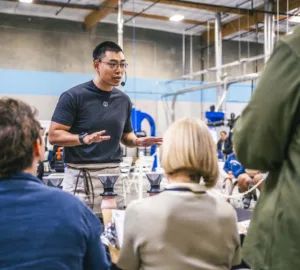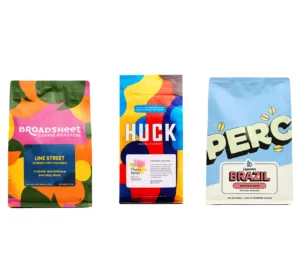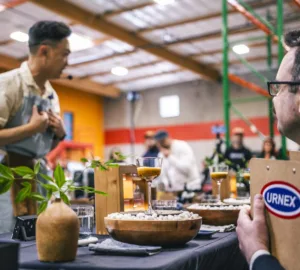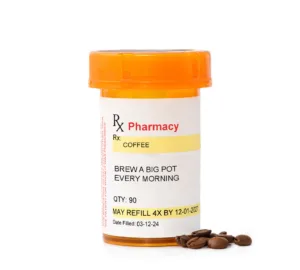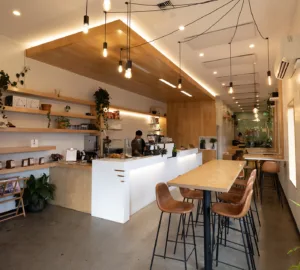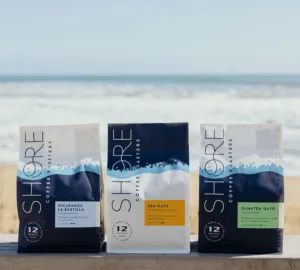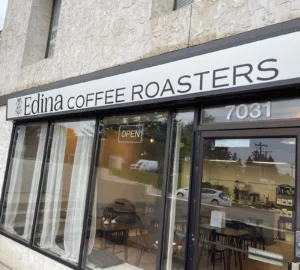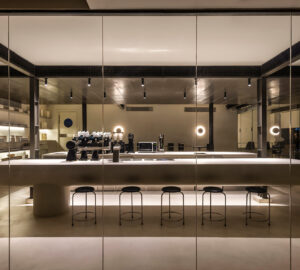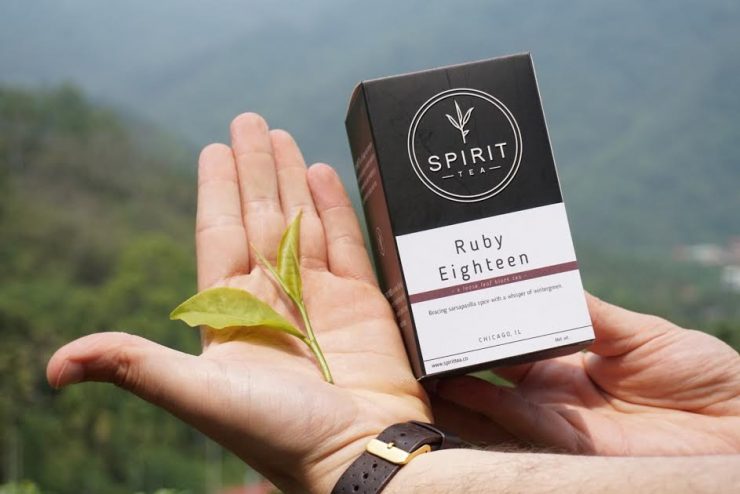
Earlier this year I had the pleasure of sitting down with Peter Luong, the founder and visionary behind Song Tea, San Francisco’s answer to third wave coffee in Camellia sinensis form. Until then I had no idea about the progressive wing of the American tea scene, one that prizes direct access to growers and cup quality; companies for whom selling flavored black teas is like spraying award-winning coffee with artificial hazelnut.
Tea, I’ve learned, is home to a roaring subculture of exciting new brands that prize scarcity, quality, and expression of terroir over bulk product. The roots of this scene are well-established in the traditional tea shops of cities like New York and San Francisco, where tea buyers have bought directly from artisans in Taiwan and China for decades, even centuries. But today thought leaders in the American tea industry are beginning the long task of educating a massive new market of American consumers that tea can be something complex, delicious, and remarkable—and they’re doing it through a distribution network of new wave coffee bars. It’s a burgeoning, quality-focused sub-sector of a well-established industry, defining itself as much by what it won’t do now as where it wants to go next.
Sound familiar?
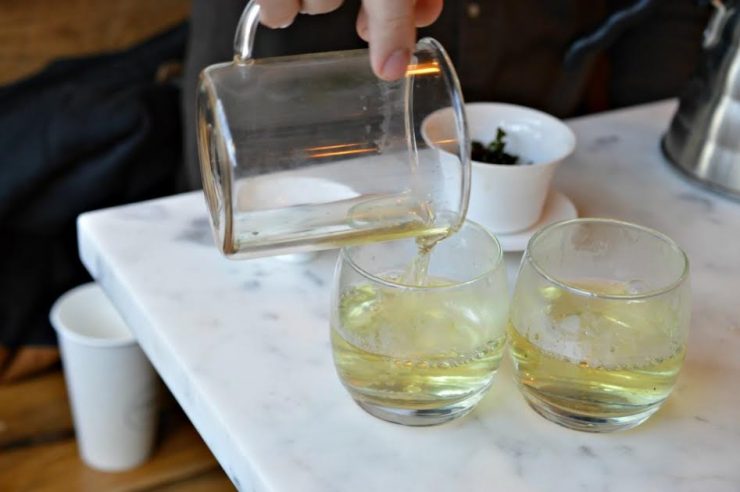
Tea is where coffee was a decade ago—it needs champions and advocates, quality seekers and flavor chasers winning over converts one cup at a time. Tea quality pioneers operating today—including Smith Tea, Kilogram, Rishi, and others—have found strong partners in progressive coffee bars where a devotion to beverage quality impacts the outlook on everything served. Still, it is a Herculean task, and to be the tea brand that does not sell Earl Grey must at times feel like waging a war against popular tastes. I met two such warriors earlier this year in Chicago: Jordan Scherer and Taylor Cowan of Spirit Tea.
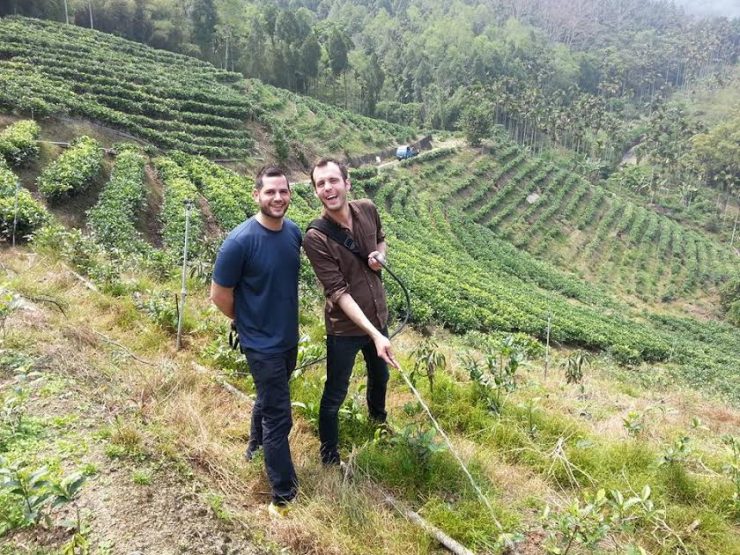
Compared to those brands mentioned above, Spirit is minuscule, a tiny little upstart barely a year old, playing a different game very much by their own rules. At Spirit you won’t find Earl Grey, you won’t find Jasmine Green, and you won’t find powdered bubble tea base. You will instead find a seasonal, ever-changing menu of teas from Taiwan and Japan, some in exceedingly rare small lots, directly imported in a rainbow of colors from white to green to black and blue. The two met in a coffee shop in college—coffee is a sub-narrative throughout their tea journey—and worked together for a tea wholesaler, running a chain of tea stores before the opportunity came for Scherer to travel to Taiwan. There he worked for a tea garden specialized in Oolong and began hatching a plan to expose more Americans to the beauty of the tea he experienced there. Spirit launched not long after.
Today the duo imports dozens of teas each year, released over a series of three “compendiums”—seasonal collections meant to offer and identify the best of that year’s harvest. Spirit only sells Camellia sinensis teas, planted in Japan, Taiwan, and China, and does not offer assamica, which is planted throughout India, Sri Lanka, and Argentina. “To use a coffee analogy,” Cowan tells me, “you have arabica and robusta, and in tea we have sinesis and assamica—assamica is tropical and gets lots of sunlight, and in tea you get a lot of astringency. What we found, and back to our retail days, is that people don’t respond as well to astringency, and these teas also have less complexity.”
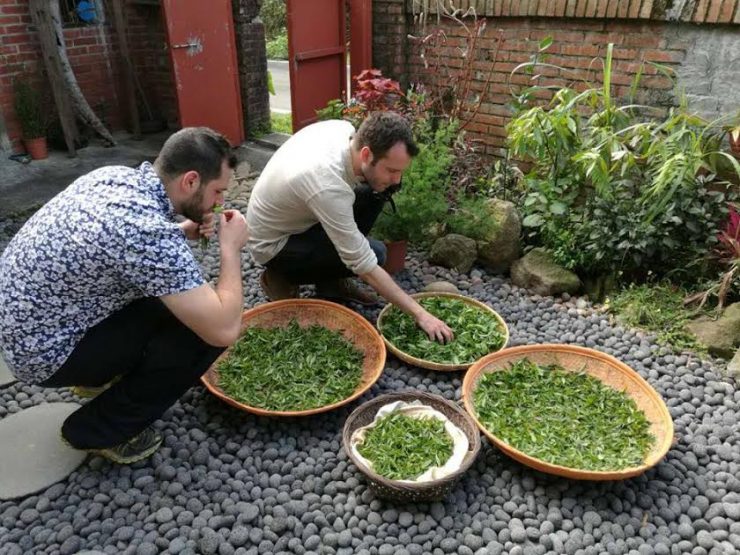
Tea doesn’t weigh much, and all the tea they sell at Spirit ships in its finished form. This means they’re able to practice a model of direct trade that is truly traded directly, far from Orwellian abuse of these words that looms over the coffee world. “We can ship 125 to 130 pounds of tea and be able to roll that product out on our menu,” says Scherer. Tea masters ship parcels straight to Spirit’s shared offices in Chicago, where they’re packaged and sold to Spirit’s retail partners. Scherer adds, “The final step of production for tea happens at origin; we are bringing in a finished product. And part of what we celebrate is the land itself and the terroir.”
Like Song Tea in San Francisco, Spirit has found an able set of partners in the specialty coffee movement, and without a retail tea shop of their own just yet, coffee bars are currently the best places to drink Spirit. “We’re very niche,” Scherer says, “and we don’t offer the teas that people will necessarily understand right away, so that means we have to be careful about who we work with.” Some of those current partners in the coffee world include Reanimator Coffee of Philadelphia, Sweet Bloom Coffee in Denver, PT’s Coffee in Topeka, M5 in Cincinnati, Steadfast Coffee in Nashville, Dogwood Coffee and Spyhouse Coffee in Minneapolis, and Metric, Caffe Streets, Gaslight, and Lula Cafe, all in Chicago.
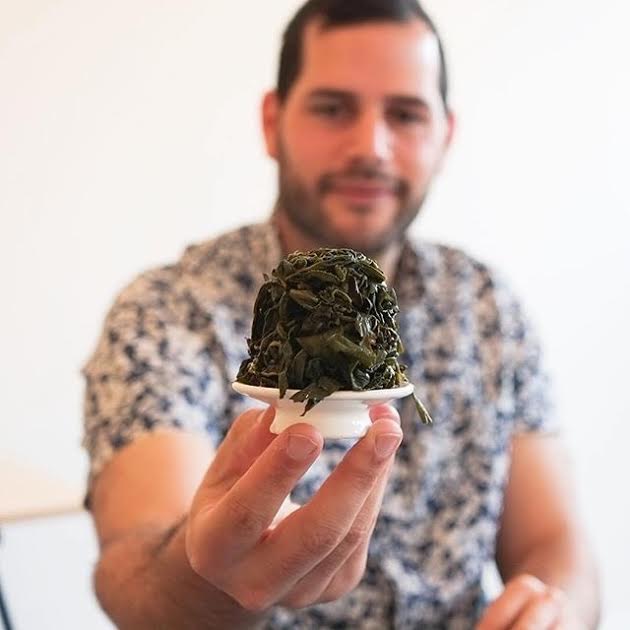
Cowan is the team’s primary educator, the one tasked with working directly to educate wholesale partners about Spirit’s offerings, and he’s learned to lean on coffee bars as kindred spirits. “We’ve been in this long enough now, in our modest year here, that we’ve sold to just about everybody—laymen at the farmers market to wine bars to diners to pizza places to specialty coffee shops and Michelin prospective restaurants in Chicago. I think specialty coffee has been our greatest ally because there is the least amount of us having to educate and explain.” Cowan’s role with the company takes him on regular educational trips to wholesale clients across the United States, and he adds, “Very quickly you can see the light in their eyes when you start talking about things, like cultivation techniques, or single-origin tea, or the idea of taking 5 minutes to prepare a tea instead of dropping a tea bag into a mug, because it showcases this side of the tea or complexity that you might not get from a nylon bag.”
Tasting tea with Scherer and Cowan is an experience. As the duo weigh, steep, and serve a boggling variety of teas, we discuss the naming conventions of Taiwanese tea varieties, and the subtle differences in flavor between, say, Anaiza Ali Shan and Qi Lan. There is an intimacy with these products this duo possesses that is more like sitting with a chef, or a learned coffee expert. “Farmers don’t think of themselves as black tea producers or oolong producers,” Cowan tells me. “Our Qi Lan producer thinks of himself as a Qi Lan producer. When you take raw tea leaves, if your producer is gifted enough, they can be made into any style.”
I am blissed out as Cowan and Scherer brew for me, using equipment that nods to coffee: a sleek white Acaia scale, and the gorgeous new Craighton Berman tea maker. “Coffee is more like baking,” Cowan says, preparing another cup—this time it’s a delicious experimental lot of Donfang Mei Ren. “It’s more like a science. But with tea, it’s more like cooking or sautéing in a sense—you can smell throughout, and there’s a lot of tricks to do it by intuition. You can watch while you’re doing it, and you can touch it for texture.”
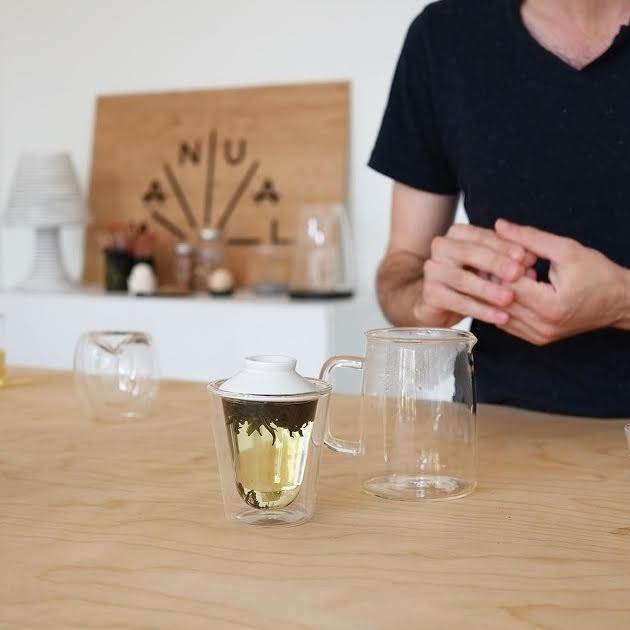
But let’s take a step back. This is a story about how the hard work done in pioneering coffee quality over the last ten years has created a new kind of distribution network for delicious tea. How, then, does one square the circle when the approach to brewing both beverages is so vastly different? “Tea is a little more by feel,” Cowan admits. “Tea people become like the weird hippies —’brew by your heart man‘—and coffee people can’t handle that. So when I train, I try to be very methodical. Total dissolved solids, tea to water contact time, heat retention—we try and be scientific and repeatable in the places we appear.”
In this way, you’ll see artisan tea purveyors like Spirit willing to meet coffee in the middle, by offering brewing instructions on their boxes and training their wholesale partners in a language they understand. Still, I can’t help but wonder if tea in a specialty coffee setting doesn’t miss some small part of the picture. Drinking delicious tea in a coffee bar is great—don’t get me wrong—but it is nothing like sitting with experts like the ones at Spirit or Song for an hour, learning about the beverage’s history and intricacies, and emerging from those sessions gloriously dizzy, mind blown and tea drunk, with a new appreciation for the vastness of tea—the sheer size of its history, complexity, and deliciousness.
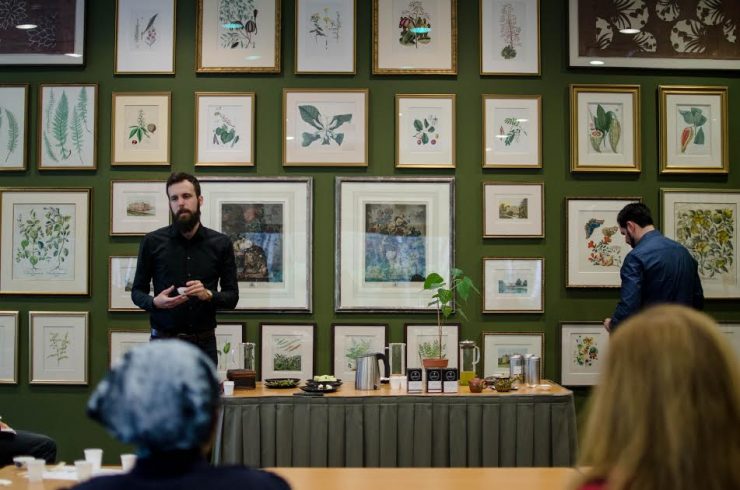
I want to extoll the virtues of what they’re doing at these companies in a coffee context, but there’s no guarantee of success in Spirit’s model. Their brand is small, plucky, and independent; neither owner has a magical source of money to float the brand’s early days, which means every purchase has to count, and the margins are tight. Cafes that partner with Spirit will likely see their by-the-cup tea prices go up; Spirit’s retail tea prices for an ounce and a half of tea start at $9 and range up into the $30-$40 range for rarer offerings. Not offering popular options like the aforementioned Earl Grey can be a deal breaker for some shops, and there’s more training involved in serving tea in this style. This takes money-where-your-mouth-is financial guts and isn’t right for every cafe—perhaps not even most cafes.
And yet, in the right hands, a coffee bar with a focused tea program can result in a better, more complete cafe experience. This is something we’re actively seeking out and engaging with here at Sprudge—not just because these stories are fascinating, but because, quite simply, good tea is delicious. An espresso for the counter, a pot of tea at the table? Sign us up. Far from making strange bedfellows, it is to specialty coffee’s avowed benefit that capable tea purveyors like Spirit Tea seek a cultural partnership.
I had to ask Jordan Scherer and Taylor Cowan about what the future holds. Will they someday open their own tea bar? And if so, what will that look like? Will they adopt the cafe service styles we’re used to in America, or will they try and offer something more like the tea house experience in Taiwan? Is there a way to capture the magic of the tea tasting—a “do not operate heavy machinery afterward” session that floats one’s consciousness downstream—in a pay-per-user retail operation? “We’re a wholesale company specifically, for now,” Cowan tells me. “We’d love to open a tea room, that is our dream. But that is our ultimate risk because it’s a very different ball game as a business. [Right now] we are able to source what we love without risk, right now it’s the best shape and fighting form we can have. But we want to reach a point where when our partner base will reach enough volume, we could open a space that was an ambassador for us.”
“All boats rise,” Cowan tells me, with Scherer nodding in agreement, “and we’re helping to raise it, but eventually—virally—it will catch on. We’re happy to bide our time and hope to be a catalyst for a new role of tea in the United States.” In the meantime, Scherer heats up some more water, and Cowan weighs out another Taiwanese cultivar, and maybe it’s the tea talking, but I’m left to marvel at what feels like communion with some bigger cultural moment, one that may not play out for years to come, but that is slowly building, steeping before my very eyes.
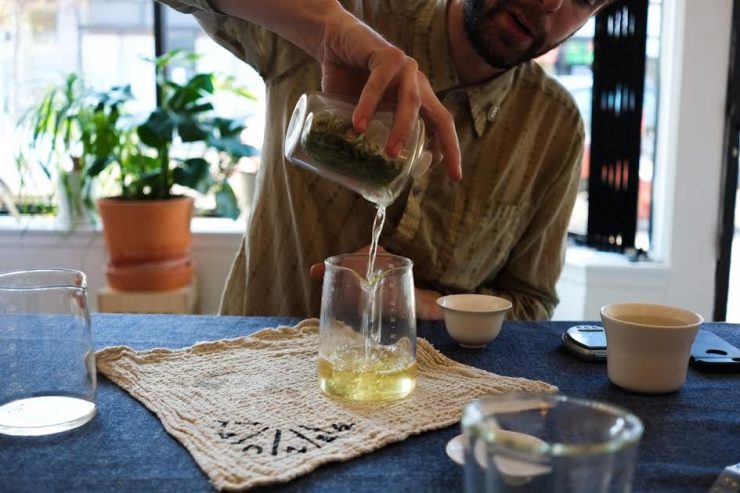
Jordan Michelman is a co-founder and editor at Sprudge Media Network. Read more Jordan Michelman on Sprudge.
All photos courtesy of Spirit Tea.













